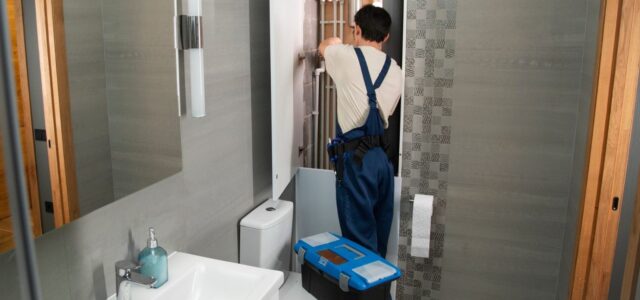Netizen says it’s an ‘extremely scary situation’ when more university graduates and diploma holders turn to plumbing and construction jobs
netizen-says-its-an-extremely-scary-situation-when-more-university-graduates-and-diploma-holders-turn-to-plumbing-and-construction-jobs
#Netizen #extremely #scary #situation #university #graduates #diploma #holders #turn #plumbing #construction #jobs,
SINGAPORE: A growing number of young university graduates and diploma holders in Singapore are turning to the plumbing and construction sector, a shift one netizen online has called an “extremely scary situation”.
Trade associations in the sector say the trend is driven by job security and competitive pay, as plumbing and construction jobs are less vulnerable to disruptions and can offer salaries that rival entry-level office roles.
Notably, the waitlist for the nine-month certificate course in plumbing and pipefitting by the Building and Construction Authority (BCA) Academy has been growing steadily over the past three years, according to Mr Dickrose Masalamani, the Singapore Plumbing Society’s president, as reported by Channel News Asia (CNA).
The BCA Academy, the educational arm of the Building and Construction Authority, offers the certificate or similar qualifications through the Institute of Technical Education (ITE), polytechnic or university—a prerequisite for obtaining a plumbing licence.
Applicants to the programme include graduates from mechanical, civil, and electrical engineering, drawn by both salaries and transferable skills.
“The waiting list … (shows) the demand is there, and youngsters are coming on board,” Mr Masalamani said.
Applicants need at least three GCE O-Level or N-Level passes in English, mathematics, and a science or technical subject. After completing the course, trainees must gain at least two years of working experience under a licensed plumber before accreditation.
Mr Masalamani, who is also executive director of mechanical contractor JD Waters, said licensed plumbers can earn a starting salary of S$4,000, roughly comparable to the pay of fresh university or polytechnic graduates. Last year, fresh university graduates in the city-state were earning a median gross monthly salary of S$4,500, while diploma holders were earning S$2,900.
He added that those with a plumbing licence can also become engineers in water treatment, waste treatment, and desalination—a trade which is needed in all nations and available whether in difficult or good times.
The Singapore Contractors Association also reported a rise in younger workers entering the built environment sector, particularly in digital engineering, sustainability, and project management.
Mr Hong Wee Khong, chairman of the trade association’s manpower and policy committee, told CNA, “More graduates are now taking up roles linked to BIM (building information modelling), robotics and construction analytics compared to two to three years ago.”
However, many Singaporeans expressed concern at the trend online.
One commenter said that while it makes sense to earn almost the same or more from a blue-collar job, it is an “extremely scary situation” when Singaporeans need to spend 16-18 years of formal education and end up in skilled jobs that can be done with years of practice.
Another commenter added, “This is sad. If there are not enough white-collar jobs going around, the immediate measure should be to reduce the number of foreigners coming in for white-collar jobs. We are facing competition from everywhere and everyone; unlike in the civil sector, the only competition is between our own locals. If there aren’t enough jobs around, tell me how to boost the population if financials are not in place. Can’t live on handouts from the government forever.”
With the rise of artificial intelligence (AI) and its perceived threat to jobs, one commenter quipped, “AI can’t change your pipes.” However, another responded, “You wait. With proper AI image recognition, robotics can do it too. Robots can build stuff in factories; you think [they] cannot fix plumbing?”
Meanwhile, another commenter pointed out that before this growing trend of turning to blue-collar jobs, it was the low pay that discouraged Singaporeans from such work. “Singaporeans avoid blue-collar jobs because of the economic hardship that most people who take up those jobs face,” they said. /TISG
Read also: Singaporeans’ reactions mixed as SingPost phases out SAM kiosks after decades of service
